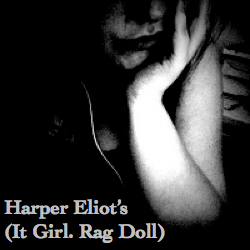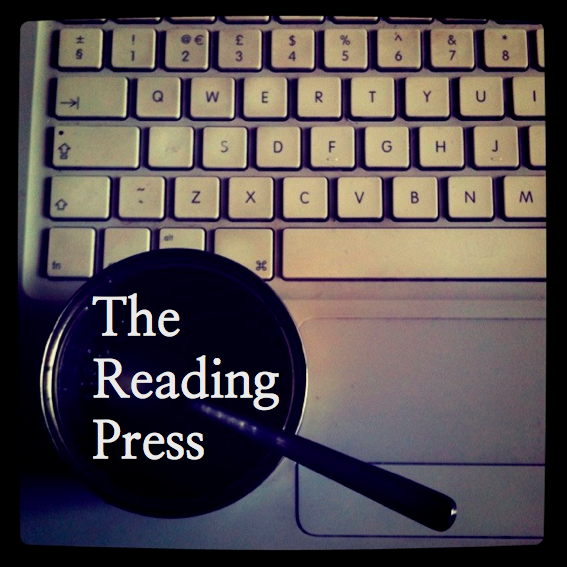This morning #FucktoyFriday – a weekly twitter hashtag – was challenged for some of the #AgePlay that has been tweeted as part of it. Although age play is a something that quite a lot of FTF players engage in, it plays a relatively small part, appearing only every few weeks. Nevertheless, it stands out, even to me, because it is a difficult topic to explain and to understand. I chose not to engage in the argument itself, but decided it was time for me to say a few things about my views on age play, paedophilia and, conversely, the cultural sexualisation of children we are experiencing here in the UK – all topics I have been considering for a long time now.
While I wouldn’t go so far as to say that the way children are treated and expected to behave is encouraging paedophilia, I don’t think that would be far from the truth. The clothes available in many children’s stores across the UK are extremely unsuitable, including padded bras and 3.5 inch heels for 8 year olds, as well as tee shirts sporting the phrase “Future WAG” and other similar items. Beyond this, studies have shown that adult magazines are being sold on low shelves in news agents, at perfect eye level for children aged 10 and under, not to mention the explicit music videos (which are exempt from age certification) being shown on television well before the watershed. You may have seen Anna Richardson’s campaign Stop Pimping Our Kids on The Sex Education Show, in which she confronted several large retailers and challenged them about the products on sale in their stores. There is also more in depth detail in an article from the Guardian.
I wish the sexualisation of children could be separated in my mind from paedophilia, but it simply cannot. It is not okay that children are wearing clothes like this, or viewing explicit images in a society that (quite rightly) demonises the sexual abuse of children. This is a battle that has to go both ways. In order to protect our children, we should endeavour to maintain their childhood for as long as necessary. I was recently asked to speak with a mature-looking twelve year old girl – whom I have a sort of big sister relationship with – because her class teacher and her parents were afraid she might be having sex. The fact that this was even a concern is an indication of how bad our culture is for young people.
Furthermore, I have experienced first hand, through my work in schools, that children who are exposed to too much television – particularly of a sexual or adult nature – have a shocking lack of imagination, which holds them back from learning. Imagination is such a powerful tool, engaging children’s thoughts and allowing them to flourish so that, when it comes to learning (for example) their times tables or alphabet, they have the capacity to understand and use this knowledge.
But I digress.
TheFreeDictionary.com defines “kinky” as ‘1. Slang given to unusual, abnormal, or deviant sexual practices’. (Although I raise issue with the word “abnormal” that is a post for another day.) What I am concerned with is the fact that, by definition, paedophilia falls into the category of kink. I don’t mean to downplay it’s seriousness by placing it there, but it seems to me that there is something to be said for this view. Bearing that in mind, I have struggled a lot with two conflicting ideas; 1) out of respect for our fellow human beings, and a desire to further freedom of speech, I feel that the growing kink communities and any acceptance of that in the wider society are a very good thing. 2) People who experience paedophilic desires (I’m sure) experience them similarly to the way others experience their kinks. Of course there is no way in hell this means that we ought to be embracing paedophilia along with other sexual practices, but I think it is something that everyone needs to bear in mind as they celebrate their kinks whilst damning anyone with an inclination towards children.
But that’s just the tip of the iceberg. To my mind, there are two kinds of paedophiles; those who act on their desires, and those who suppress them. The first group are incredibly dangerous and the action we take towards them, I feel, is completely justified – perhaps even too soft. Child abuse, in any form, is something that people should be and are locked up for. I believe that parents have every right to know where men and women of this nature are and be given every opportunity to protect their children from harm.
However, when it comes to the second group, things are a little more complicated. Paedophilia is a psychological disorder and those who suffer from it need to seek therapy to overcome their desires. Those who are suppressing their inclinations, I’m sure, are keen to find help and support in their quest for peace. However, in many countries the law states that therapists who believe they are treating paedophiles have to report their patients to the authorities. For the most part therapists won’t break doctor-patient confidentiality if their patient doesn’t have any contact with children; but this is cold comfort when you consider how many people do have contact with children. Obviously these laws have been put in place for very good reasons – to protect children – but I fear they may actually have a detrimental effect on our battle against paedophilia. As long as these laws are in place, people fighting to suppress their paedophilic urges are extremely unlikely to seek therapy, for fear of being reported. I can’t imagine that there are many groups of people who have to deal with such extreme internal conflict, and in a weird way I have a lot of respect for people who are quietly and successfully suppressing their deepest desires for the good of the people around them.
As someone who works with children, and who is keen to have children of her own, I can’t, in all good conscience, say that I think these laws should be lifted. It feels like very thin ice, and I know that when I have children I will want to know as much as I can about the dangers in my local community. What I propose, instead, is an anonymous phone line for people struggling with paedophilia; that way they could seek help without fear of putting their lives at risk, and their therapists would not have to deal with the moral dilemma of whether to report them or not. To me this, at least, would seem like a step in the right direction.
But where does age play fit into this? Personally, in the vast majority of cases, I don’t think it does. There are two extremely important defining characteristics of age play that set it apart from paedophilia; 1) people who engage in age play are adults, not children – otherwise it would be paedophilia, not age play, – and 2) age play is consensual. I am of the belief that anything that occurs between consenting adults is acceptable, and if you speak to people who engage in this kind of sexual play, you will find, overwhelmingly, that they are very intelligent, very considerate people who are, of course, vehemently against anything involving children. In my chat-room days I did come across a fair amount of people who put themselves forward as age players and then told me disturbing stories about the desires they had for their children, or sexual acts they had engaged in with adults when they were children. There is such a huge difference between those people and true age players. The first group are to be avoided at all costs, and reported if that’s an option. But the age playing that I have experienced as part of FTF is done by respectful people who – as far as I can tell – hold in their minds a very clear distinction between what they do, and what child abusers do. There is really no comparison between consent-seeking kinksters and paedophiles.
These three issues – the sexualisation of children, paedophilia, and age play – although separate are inextricably linked, if not by fact, then by society’s view of them. I believe that to overcome the first two, and to set the third apart, all three need to be considered rationally. They require us to control our gut reactions and act with morality and the protection of our children in the forefront of our minds. And then, maybe, we might be one step closer to distinguishing immorality from freedom.










well said. the consensual interaction of two (or more) adults is freedom. the interaction between an adult and a child (defined by law) is not a consensual interaction, and must be tamed by law. children need to be allowed to grow and experience life without the forced intrusion of sexuality. unfortunate how many people choose to act on their own impulses and disregard the well-being of the child. thank you for writing!
A very good post on a very difficult topic.
The sexualisation of children in the sense of placing upon them the trappings of the adult sex object is a problem, but we must remember that when we were children we were sexual beings. Even foetus's in the womb often masturbate. And when we were children we sometimes engaged in erotic play with other children. A lack of acceptance of these forms of childhood behaviour by adults would be very destructive.
Here is something I've written on the topic of sexual fixations in a book I've just finished writing :
Sexual Fixations
As children we naturally were interested in finding out what feels good. (Even foetuses in the womb often discover the pleasure of masturbation.) But sometimes these forms of exploration would bring a negative response from adults.
If we got the message that some aspect of our behaviour was unacceptable, we might become fixated on it and carry this fixation into adult life. For example a little boy who wanted to see whether it felt good to put on his sister’s dress and panties might meet with the censure of his parents and feel that he was unacceptable because he had carried out this experiment.
Like a sore tooth that we can’t seem to stop poking with our tongue, the memory of rejection keeps us going back and re-enacting the moment, preferably in some context in which we can feel accepted. So the little boy, now a transvestite, will dress up as a woman in a community with others who do likewise, basking in a mutual show of acceptance of that which deep down they still do not fully accept.
Where this must be a particularly difficult problem is where the fixation is on something which can be genuinely destructive and thus carries a social taboo which is not merely intolerance of difference.
Such is the case with paedophilia. It is normal for a child to feel an erotic attraction to other children, but if we fixate on this kind of attraction in a way which causes us to carry it into adulthood then it becomes a serious problem, especially if we act on these feelings and, as a result, harm children.
Even in such a case the principle still applies that the past cannot be changed and that the thoughts and emotions are, in themselves, morally neutral, but the individual could not use the argument, as with the transvestite, that acting on the desire was harmless.
Luckily, for most of us, if we find ourselves fixated on something it is something far easier for us to learn to accept and thus move on from.
This shouldn’t be taken as meaning that sexual fetishes are necessarily a bad thing, only that they are a limiting thing. There are advantages in being able to enjoy a wider range of sexual experiences.
AussieScribbler – I see your point, and I certainly engaged in masturbation as a child. However, I think there is a huge difference between children exploring their own natural, erotic imaginations, being curious about what feels good, and us allowing them to connect that with sexuality in the media etc. Those two things naturally come together later, but we have a responsibility to keep them separate for as long as a child needs it.
Whilst exploring your own body as a child is healthy, we are agreed on the fact that adult sexual objectification has no place in a child's life. I am not interested in denying children their own healthy curiosity. I am simply in favour of keeping them away from our unhealthy media.
You've done an excellent job of making important categorical distinctions. I am a mother, have worked for children's rights causes, and was myself raped as a child. As you might imagine, I have strong opinions. As you stated clearly, it is important to understand that people who engage in age play are adults involved in consensual activity that should therefore not be criminalized. I find it personally distasteful, upsetting, actually, and trauma triggering. I don't want to engage in it or even know about it. That doesn't mean I judge those who do. I have numerous kinks that I am sure offend numerous people. My feminism is challenged constantly. How I deal with my disapproval of age play in twitter is simple: I just mute the hashtag #ageplay and poof, it goes away. How I deal with real life is just as simple: I don't involve myself in groups or activities where that is likely to come up. To me, it is a basic axiom of free speech: I defend your right to say it, it doesn't mean I have to like it or even listen to it. But I still defend your right to say it. (It is fine with me when people don't approve of my kinks and don't want to know about them, again, as long as they don't step on my rights to enjoy myself.)
Are there people who engage in age play who are really pedophiles, or survivors of childhood abuse re-enacting their trauma? Perhaps, perhaps not. Who can say, just as there are probably dangerous sociopaths — or their victims — who engage in consensual BDSM, or for that matter, that live squeaky clean vanilla sex lives. Those who _harm_ other people — nonconsensually — walk among us, at work and church and school just as much as in sexual settings. (Arguably, people actively engaged in consensual kink activity are less repressed and more in touch with how to get their needs met humanely.) You question my hypothesis? Then I have two words for you: Catholic priest.
The point on which I will disagree with you is the hotline, or any sort of protection for people who actually harm children. Rape is a crime of violence, not sex. It is all about power and control. There is yet to be a study that shows in any way that these perpetrators can be rehabilitated. Even chemical castration results in rapists raping with objects, because the end game is not the sex, but the violence and the control. The math is frightening – a geometric progression since a high number of victims grow up to victimize. I've worked on myself alot on this topic, but have yet to find any mercy in my heart. I'm a mama lion now, so you can bet I will just strengthen my position over time.
As for the cultural sexualization, god yes, I am raising two daughters in America. It is a constant battle. I have a goal to raise two healthy, independent young women who will never been anyone's victim. I want them to be children as long as they can be children. And someday, I want them to grow up with healthy, positive attitudes about sex as adults. I can't make the slutty dolls and costumes disappear from this world. I try to counter it with martial arts lessons, sports, and lots and lots of conversation.
I completely agree with everything you say, and I'm glad you seem to be mostly with me on all of these issues, given that you were a victim and you are a Mother.
Just to clear up the point on the phone line thing… to my mind it's only a viable option if I am right in thinking that the people who would use it are currently not seeking any help whatsoever. It's aim is not to protect those who would otherwise be in (face-to-face) therapy, but for the use of those who are struggling in silence. I worry about the effect of internalising such serious psychological issues. My aim with this idea would be to encourage people to seek help in the hope that that would help protect children. Do you see?
Of course, I'm not a psychiatrist, so I can't comment on this from a scientific viewpoint, and you probably know better than me about whether perpetrators can be rehabilitated. But it is worth pointing out that, although the two often overlap, there is a difference between rape and paedophilia… I was imagining a way to support people in their self-control, rather than "cure" them, which I know is well beyond mankind's abilities at present.
Wow…incredible post on some very difficult and touchy issues! Love all the comments.
Your distinction between the three issues is well thought out. I too loathe the sexualization of our children at too early of an age. The clothing, the TV, the pop culture in general. Too much stimuli. I don't know how parents deal with it.
And I agree with other commenters that children are sexual in their own way and should not be punished or made to feel guilty in exploring it as is natural for children to do. I think we all can see that. Children are curious. Period.
Age play…well I fully support it in the context of consenting adults exploring their own range of sexual interests. I appreciate Wyeth's view to support free speech, without having to agree with that speech or listen to it. As it should be.
Now with paedophilia, to me that is the vilest type of abuse one human being can commit on another–especially a child who is innocent & vulnerable. It should be dealt with strictly, and yet I also feel that those who commit these crimes have a terrible wound festering somewhere in their souls. Punishment does not prevent future behavior I think…so what then? Permanent incarceration? Maybe the best thing would be to become a sexually healthy society that stops creating paedophiles…I don't know the answer really.
But, a good discussion and debate are a great start to exploring some ideas surrounding these topics.
Thanks, for the great read! :)
Your post was thoughtful, intelligently written and even brave considering the subject matter.
The sexualization of children is an unfortunate side effect of a world that seemingly wants to do away with the idea of childhood. Children are being asked, even forced, to become adults earlier than ever and this can only lead to dangerous choices down the road.
That you would would write such a piece is no surprise as you have always been a thoughtful and talented writer. The brave part of this post though is what intrigues me the most.
To suggest therapy for those who desire children is an enlightened approach to the problem. Our society seems to simply want to lock away, or even murder, those who are unable to follow the norms of our society.
Anyone who abuses a child deserves punishment in every sense of the word. However, to ignore their issues, and those of a larger society that in some ways helps create their desires, is sheer foolishness.
This is a situation that demands every resource be brought into play to ensure nobody even considers hurting a child.
I for one, would rather these people be confronted and helped, while ensuring they are prevented from ever playing out their fantasies, than just simply hoping they face final judgment in a prison courtyard.
Pingback: The Best Break-Up Song | Lady Grinning Soul